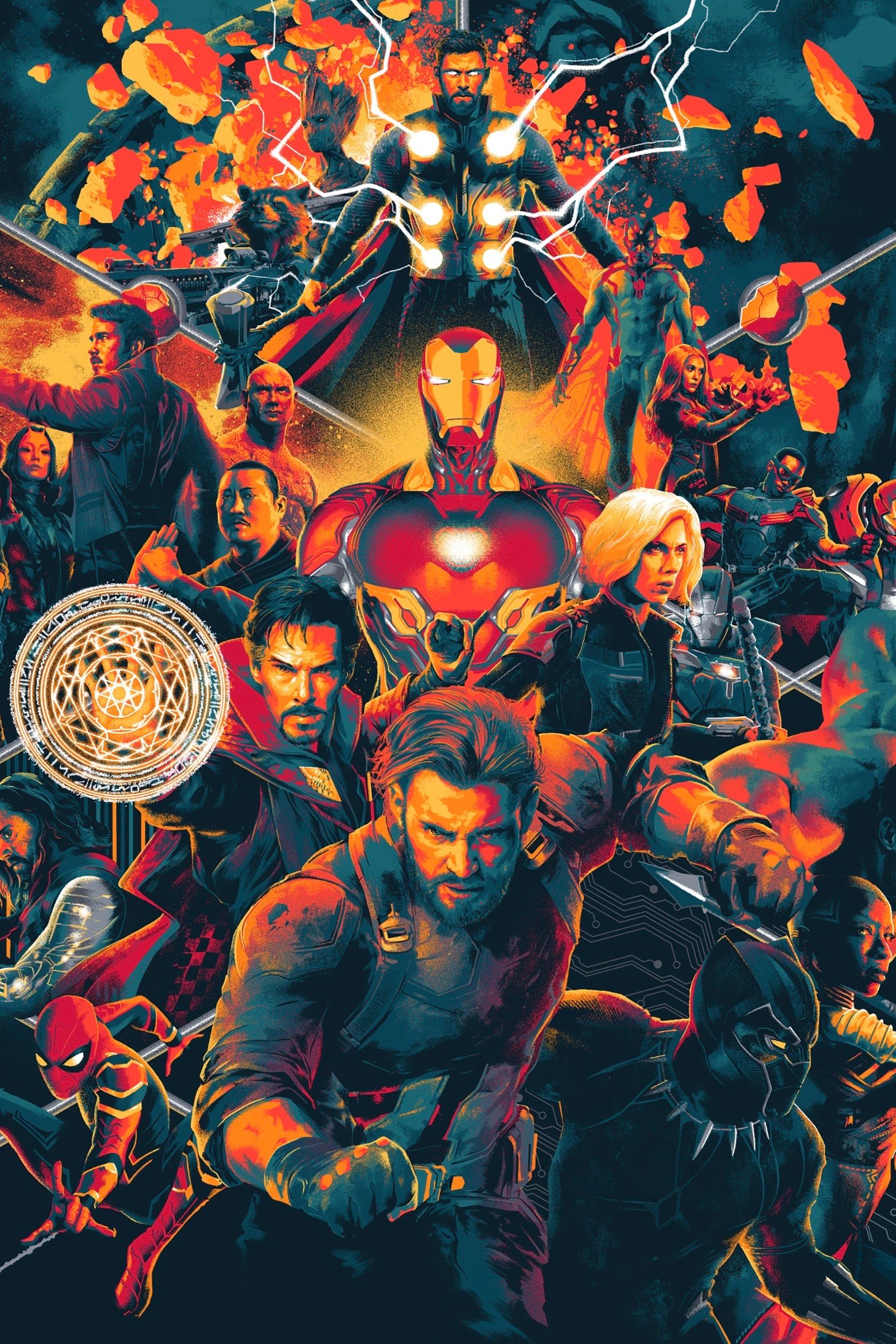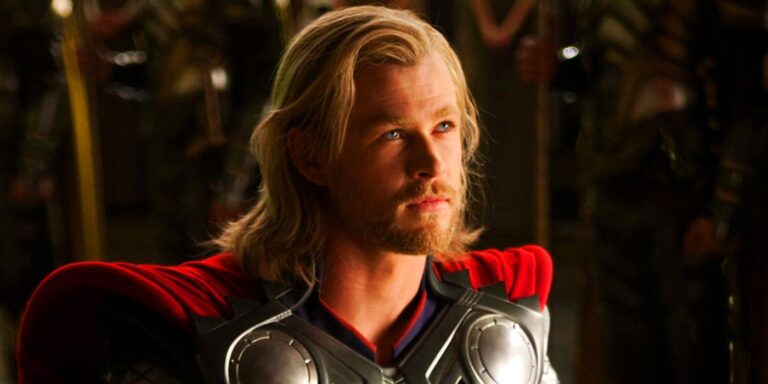14 years after Thor’s MCU debut within the authentic Thor film, I am nonetheless unhappy the franchise appeared to by accident sabotage an efficient means that the story of certainly one of its most wasted villains might have been retrospectively improved. As one of many MCU’s oldest heroes – each in a real-world sense, and when it comes to their in-universe age in the MCU timeline – Thor is of course one of the crucial essential protagonists in Marvel’s movie franchise. Nonetheless, he is additionally a personality who has had a not strictly simple path to the current day, having confronted a number of curveballs to say the least.
That is true in the case of Thor’s personal private arc, and when wanting on the reception to the films that star the God of Thunder, which have typically gotten some very blended outcomes when it comes to the best way they deal with the hero and adapting his comedian supply materials. This latter concept seems to have performed a giant half in one of the crucial controversial Thor villain depictions within the MCU’s roster – which is made all of the extra complicated as a result of a technique of including later significance to mentioned antagonist’s story was seemingly inadvertently thwarted.
Gorr Is Arguably The MCU’s Most Wasted Thor Villain
The Thor MCU film roster had a diverse vary of successes with its villains, concurrently launching Loki into main success and an eventual hero redemption arc, whereas additionally introducing figures like Malekith to rather more divisive reception. Of the four Thor movies, the villain who faces probably the most difficult and wasted destiny is arguably that of Gorr, who’s certainly one of Thor’s newer main villains within the comics, and whose prominence within the on-page world raised some appreciable hype about how the MCU’s blockbusters might deal with the character.
Gorr first appeared within the comics in 2012’s Thor: God of Thunder #2.
With The Darkish Knight’s Batman Christian Bale solid within the function, the stage appeared nicely and actually set for Gorr and Thor to face off in opposition to each other in a film that tailored the antagonist on the prime of his recreation. Sadly, this does not fairly come by way of in Thor: Love & Thunder, with the dramatic core of Gorr’s tragic backstory being solely addressed briefly, and the total extent of his god-killing efforts and mission glossed over, undermining him as an imposing antagonist and certainly one of Thor’s biggest threats.
Gorr was already maybe a clumsy match into the extra comedically targeted Thor: Love & Thunder as one of many darker and extra grim enemies that Thor faces, leaving moments of tonal whiplash because the story makes an attempt to stability its extra somber moments with its usually in any other case playful strategy to the story. With Gorr dying simply after making his want to carry his daughter Love again from the lifeless, it appears his MCU story begins and ends with Thor: Love & Thunder, which naturally limits the extent with which additional installments can observe up on the character and his arc.
The MCU’s Thor Set Up Means It is Not possible To Correctly Use The Finest Approach To Make Gorr’s Story Matter After His Demise
Gorr is ready to have an enormous posthumous significance to Thor’s story in Marvel’s comics, with the lingering results of the character and his story main Thor to turn out to be unworthy of Mjolnir for a time period. This started after Nick Fury Sr. whispered one thing unheard however clearly important to the God of Thunder in Marvel’s 2014 Unique Sin #7, which generated a years-long thriller as followers waited and puzzled about whether or not they’d ever be taught what Fury might have mentioned that was so life-changing for the Odinson that he turned unable to wield his iconic hammer.
This was revealed 3 years later in Unworthy Thor #5, whereby it is unveiled that the phrases Fury whispered had been quite simple ones: “Gorr was proper.” Given the context that Fury says this after revealing he is been secretly neutralizing threats that not Marvel’s heroes or SHIELD knew about – and given he is gained the Watcher’s primarily all-powerful information, which he demonstrates to Thor earlier than telling him this – the reveal that Fury believes Gorr was proper concerning the gods being a corrupt power understandably throws Thor, who’s established as no less than partially worrying this was true beforehand.
The potential for the MCU to roughly adapt this storyline in some capability might have allowed for Gorr’s considerably controversial MCU story to nonetheless get some weight to it additional down the road, including lasting resonance to his introduction and retroactively bettering it within the large image. Because it stands, although, that is successfully unimaginable for the MCU to adapt in a means that retains this storyline’s significance – partly as a result of the most effective time for it will have been earlier than Jane Foster mounted the hammer and have become Mighty Thor, since Unique Sin kicked off this story within the comics additionally.
The idea of Thor being unworthy or concerning himself as being unworthy of wielding Mjolnir has been the topic of a lot focus within the MCU’s historical past, with Thor initially being unable to wield Mjolnir after Odin sends him to Earth, after which going by way of features of his “unworthy” arc in Avengers: Endgame whereas struggling to take care of the grief, guilt, and lack of being unable to defeat Thanos beforehand. Add in the truth that Thor solely simply began wielding Mjolnir once more in Thor: Love & Thunder, and it is clear this story is at present unimaginable to make use of correctly for the MCU.
Love Means Gorr’s Story Might Nonetheless Matter In The MCU, Simply In A Completely different Approach
With Gorr lifeless and the MCU’s means to adapt his significance into an unworthy Thor arc scuppered, it appears seemingly that is one path that must not be explored within the franchise, in need of one thing like a full reboot occurring – and even then, it is seemingly a reboot of Thor’s story would not wish to rehash his most up-to-date film villain anytime quickly. That mentioned, the actual fact Thor: Love & Thunder brings the titular MCU-exclusive Love into the franchise means the MCU might nonetheless nicely make Gorr’s story important in a really completely different means.
With Love having not existed in Marvel’s comics, her MCU debut – and the setup of her now having some very appreciable powers because of her bond with Eternity – opens the door for Gorr’s impression on the franchise to mainly go in the wrong way, and resonate within the franchise through the significance of his closing act, which was to carry his daughter again and entrust her to Thor himself. Although it is an strategy that actually lacks the haunting parts of adapting the comedian angle, I believe this might hopefully nonetheless repay for the franchise in the long term by bringing a brand new hero into its world.

- Solid
-
Robert Downey Jr., Chris Evans, Scarlett Johansson, Samuel L. Jackson, Jeremy Renner, Chris Hemsworth, Mark Ruffalo, Edward Norton, Paul Rudd, Tom Holland, Tom Hiddleston, Anthony Mackie, Cobie Smulders, Brie Larson, Chadwick Boseman, Sebastian Stan, Chris Pratt, Dave Bautista, Zoe Saldana, Bradley Cooper, Vin Diesel, Pom Klementieff, Josh Brolin, Karen Gillan, Clark Gregg, Paul Bettany, Don Cheadle, Benedict Cumberbatch, Evangeline Lilly, Simu Liu, Aaron Taylor-Johnson, Angelina Jolie, Kit Harington, Salma Hayek, Richard Madden, Barry Keoghan, Gemma Chan, Ma Dong-seok, Brian Tyree Henry, Kumail Nanjiani, Lauren Ridloff, Lia McHugh, Jonathan Majors

